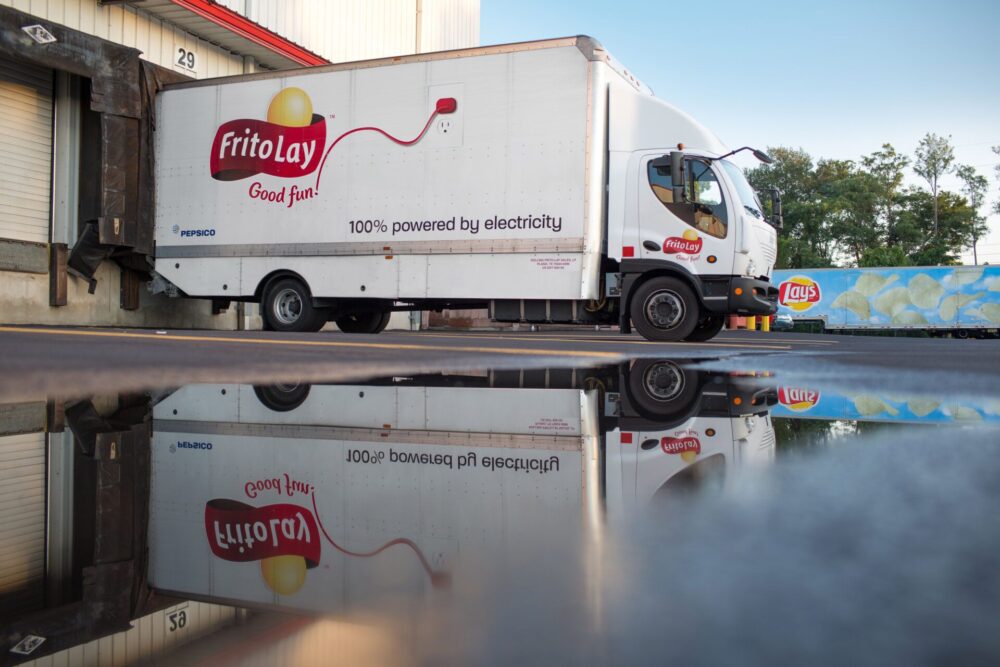- Consumer goods giant PepsiCo faces a potential $4.4 billion of climate-related risk per year by the end of the decade, according to financial think tank Planet Tracker.
- Planet Tracker attributes this risk to PepsiCo’s current emissions reduction trajectory, which is set to decline slower than the 45% reduction recommended by the Science Based Targets initiative (SBTi).
- Unless it mitigates emissions, PepsiCo will miss its Science-Based targets by 58%.
Why it matters:
“Despite its ambitions to reach Net Zero by 2040, PepsiCo lacks a Net Zero Roadmap and its disclosed investment only covers a quarter of the gap between its trend of emissions and the SBTis’ recommended level. This makes it unclear whether the company will achieve its targets on time,” notes Planet Tracker.
How companies manage greenhouse gas emissions can impact their overall profitability and risk profile. Little surprise, then that investors are now increasingly demanding more reporting around Scope 3 emissions from their investee companies.
This is especially true when it comes to Scope 3 emissions, which are typically much greater than Scope 1 and 2 for large corporations. In the case of PepsiCo, Planet Tracker reports that Scope 3 emissions account for 90% of PepsiCo’s overall emissions.
Scope 3 emissions are those related to activities up and down the value chain that agrifood corporates like PepsiCo don’t control. For example, if a company sources beans from a coffee grower on deforested land, that contributes to the company’s Scope 3 emissions as the responsibility for that deforestation rests partly on the company’s shoulders.
Ion Visinovschi, a research analyst at Planet Tracker, said, “Investors and lenders should demand a credible Climate Transition Plan where the risk of its main source of emissions is publicly quantified and the expected mitigation quantities and required investment for the mitigation is fully disclosed.”
Pepsi’s response:
In 2021, PepsiCo announced its pledge to become “net zero” by 2040 — 10 years ahead of the deadline set by the Paris Agreement.
According to Planet Tracker’s research, PepsiCo’s greenhouse gas emissions grew historically between 2019 and 2021 at an average annual rate of 7.2%; its revenue increased at a compound annual growth rate of 8.8%.
“Taking this efficiency improvement into consideration and assuming a long-term revenue growth of 4.8%, Scope 1, 2 and 3 emissions would decline by 14% compared to their 2021 level, while the SBT [the Science-based Targets initiative] recommends a 45% reduction versus the 2021 baseline,” notes Planet Tracker.
Planet Tracker says this implies alignment with a 2°C pathway by 2030 for Pepsi.
AFN received the following statement from a PepsiCo spokesperson:
“PepsiCo aims to provide transparent reporting around our climate-related disclosures. We compile our greenhouse gas emissions data according to the Greenhouse Gas Protocol, a well-respected international standard for carbon accounting, and disclose it in line with major reporting frameworks, including the Task Force on Climate-related Financial Disclosures (TCFD). In 2021, our emissions across Scopes 1 and 2 and a majority of emissions across Scope 3 were externally assured by a third-party auditor, and we have received an A or A- on our CDP Climate Change Questionnaire submission each year since 2017.
We have published an in-depth Climate Action Strategy identifying the key levers we intend to pull in an effort to achieve our climate reduction ambitions, and we are making progress towards our 2030 and net zero goals. As of 2021, we reduced our Scope 1 and 2 emissions by 25%, against a 2015 baseline, and because we recognize that mitigating Scope 3 emissions is not a quick solve and is a challenge for all businesses, we are providing support to our value chain partners to help them with their climate transition.”
In an interview with AFN last year, PepsiCo said its Scope 3 accounted for 93% of its emissions, which had increased by 5% “due to largely unprecedented business growth.”





